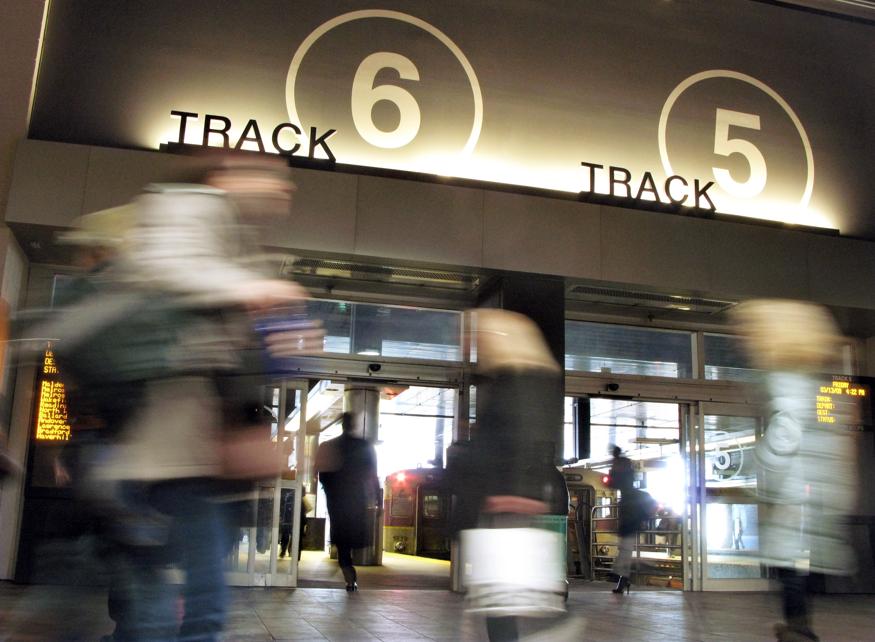
More changes could be coming to the MBTA’s contract with Keolis Commuter Services, just after the agency agreed to pay the company at least $66 million more over six years.
Keolis officials have been in talks with the T about ways the company can help customers navigate stations with better signs, according to Clement Michel, president and chief executive officer of Keolis North America.
In addition, T and Keolis officials are continuing talks on splitting fare revenue if Keolis helps the T collect more money.
Keolis officials have estimated that the T loses $35 million a year because of fare evasion and uncollected fares on the commuter rail. They have said they could spend $10 million to install fare gates at commuter rail hubs to collect more of those fares — but that the T would likely have to split the fare revenue with Keolis.
The company has been bleeding money since it took over in the summer of 2014: In 2015, Keolis reported a loss of $30 million and expects another loss this year.
Recently, the T has agreed to pay Keolis for various reasons, including taking care of more locomotives and operating under new schedules.
If the T agrees to additional changes, the company could get even more money for its Boston operation.
Since Keolis began running the T’s commuter rail, the company has become increasingly focused on its Boston business: Keolis this year moved its North American headquarters from Virginia to Boston, the home of its largest and most important contract in North America.
Michel took over as the chief executive officer and president of the company’s North American operations in March. He had worked for years at France’s national railroad, which owns Keolis. He eventually moved to Melbourne, Australia, to run Yarra Trams, which is operated by one of Keolis’s joint ventures.
He said he’s eager to bring more changes to the commuter rail contract: For example, he has even brought up changing how people refer to the service.
“Commuter rail’’ denotes that the operation is just for commuters, while the service should be used by everyone, he said.
“The way you market the service is shaping the demand,’’ he said.
Fare hike limits
Both the House and the Senate rejected a proposal from Governor Charlie Baker that would have raised some individual MBTA fares higher and faster than the Legislature had wanted under its own legislation.
The T interprets current state law to say it can increase fares up to an average of 10 percent every two years. The agency hiked fares this month by an average of 9.3 percent.
In an amendment to the state budget, lawmakers sought to limit fare hikes for every single-ride or monthly or weekly pass to 7 percent every two years.
But Baker believed that the law was too restrictive: He asked legislators to consider a change that would allow the T to increase some individual ride or pass prices higher than 7 percent every two years, as long as the average increase didn’t go higher than 7 percent overall. That’s in line with how the agency currently calculates its fare increases.
Under the language Baker proposed, the transit system would have also been able to raise fares more than once every two years, a move that worried transit advocates.
But because lawmakers rejected the amendment, Baker must now either choose to sign or veto the language.
Lizzy Guyton, Baker’s spokeswoman, said the governor will review the final budget proposal, and that “the administration continues to believe it is important to preserve the MBTA’s ability to make offsetting adjustments across multiple modes or fare products within the authority.’’
Nicole Dungca can be reached at nicole.dungca@globe.com. Follow her on Twitter @ndungca.



